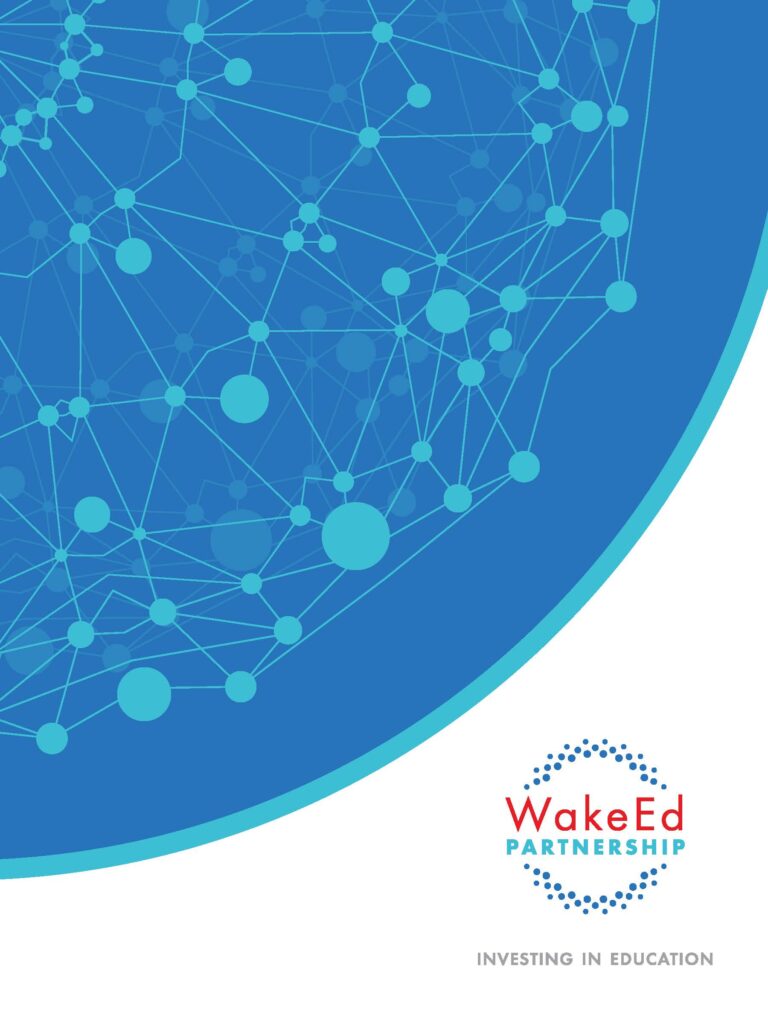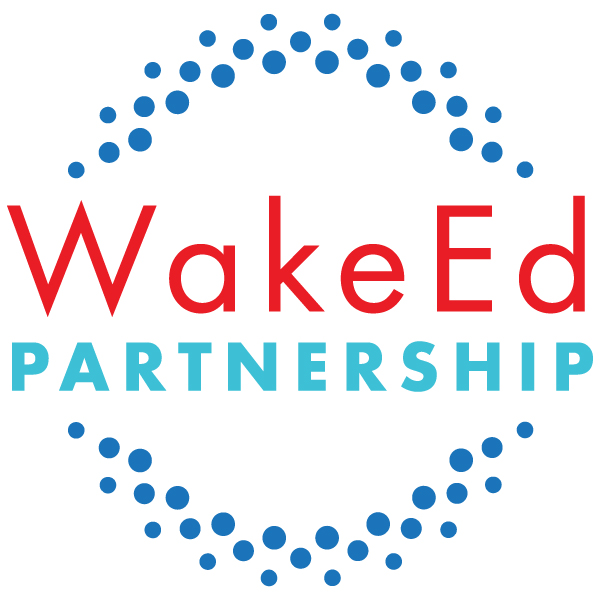[et_pb_section fb_built=\”1\” _builder_version=\”4.2.2\”][et_pb_row _builder_version=\”4.2.2\”][et_pb_column type=\”4_4\” _builder_version=\”4.2.2\”][et_pb_text _builder_version=\”4.4.5\” text_line_height=\”1.2em\” header_font_size=\”40px\” custom_margin=\”||3px|||\” custom_padding=\”||10px|||\” hover_enabled=\”0\”]
Learning for Learning’s Sake
By Kayla Turner | Social Studies Teacher, Vernon Malone College and Career Academy
As I reflect on the 2019-2020 school year, despite its challenges, it was a year of new beginnings and growth. Seemingly overnight, I had to adapt to a new normal, one that did not involve interacting with my students, coworkers, and administrators on a daily basis at Vernon Malone College and Career Academy. A new normal that, at first, was intimidating and daunting, but in reality, was a chance to grow, reflect, and evolve as an educator – a journey that goes hand in hand with my experience working with WakeEd Partnership.
Focus on Growth & Mastery
Teaching remotely allowed me to focus on my students’ growth and mastery of concepts without the initial promise of grades. When remote learning began, the message from the county was to focus on learning for learning’s sake. Students were presented with the opportunity to learn without the fear of failure. This is something I could truly get behind. As a teacher, my big push has been to focus more on my students’ mastery of content and skills and less on their grades. I have been working with students to shift the conversation in my classroom from being one centered around grades to one centered around mastering content. How can students demonstrate that they have mastered a skill or standard and how can I help students who are struggling?
[/et_pb_text][et_pb_image src=\”https://www.wakeed.org/wp-content/uploads/2020/05/EXWHR7QUEAE8Hpn.png\” title_text=\”EXWHR7QUEAE8Hpn\” _builder_version=\”4.4.5\”][/et_pb_image][et_pb_code _builder_version=\”4.4.5\”]
A7: I'm hoping that this has helped students understand the power of learning to learn. #VMCCAchat
— Kayla Turner (@MsTurner1027) May 7, 2020
[/et_pb_code][et_pb_text _builder_version=\”4.4.5\” text_line_height=\”1.2em\” header_font_size=\”40px\” custom_margin=\”||3px|||\” custom_padding=\”||10px|||\”]
During remote learning I was able to create more individual learning experiences through student voice and choice. Students could take ownership of their learning and were encouraged to work on activities related to skills and content they were struggling with, to prepare them for a learning task on Friday. Students were then given feedback on their tasks, as well as suggested resources to help improve their learning and time to schedule individual or small group sessions with me to walk through their work. For me, as an educator, it was important to allow students multiple opportunities to be successful and go through the feedback process, while also helping them to identify the areas where they needed more support.
Sample Weekly Lessons: Week 3, Week 6, Review #1
Creating a Professional Learning Network
As a former participant and current coach for WakeEd’s SummerSTEM program, I understand the importance of building a community of educators. SummerSTEM enables teachers throughout Wake County to network and grow with each other. Now, more than ever, it is important to build a Professional Learning Network to support our educational endeavors.
I have always found Twitter to be an invaluable resource. It has allowed me to connect with teachers throughout the nation to share resources and discuss the of impact remote learning on students and teachers alike. I, along with my school’s technology coach, Ashley Allen, decided to create and moderate our #VMCCAchat during remote learning, as a way to keep our staff united. From conversations about the impact of remote learning on students to the implications for the future of teaching, we are encouraging teachers to actively reflect on their educational practices and rethink education as a whole.
[/et_pb_text][/et_pb_column][/et_pb_row][et_pb_row column_structure=\”1_2,1_2\” _builder_version=\”4.4.5\”][et_pb_column type=\”1_2\” _builder_version=\”4.4.5\”][et_pb_image src=\”https://www.wakeed.org/wp-content/uploads/2020/05/Kayla-Turner_photo-3-twitter.png\” title_text=\”Kayla Turner_photo 3 twitter\” _builder_version=\”4.4.5\”][/et_pb_image][/et_pb_column][et_pb_column type=\”1_2\” _builder_version=\”4.4.5\”][et_pb_image src=\”https://www.wakeed.org/wp-content/uploads/2020/05/Kayla-Turner_photo-2-twitter.png\” title_text=\”Kayla Turner_photo 2 twitter\” _builder_version=\”4.4.5\”][/et_pb_image][/et_pb_column][/et_pb_row][et_pb_row _builder_version=\”4.4.5\”][et_pb_column type=\”4_4\” _builder_version=\”4.4.5\”][et_pb_text _builder_version=\”4.4.5\” text_line_height=\”1.2em\” header_font_size=\”40px\” custom_margin=\”20px||3px|||\” custom_padding=\”||10px|||\”]
Remote learning was not perfect, but it was an opportunity for me to challenge myself and to grow as an educator and a teacher leader; and in the end, shouldn’t we all be striving to grow?
[/et_pb_text][/et_pb_column][/et_pb_row][/et_pb_section]


